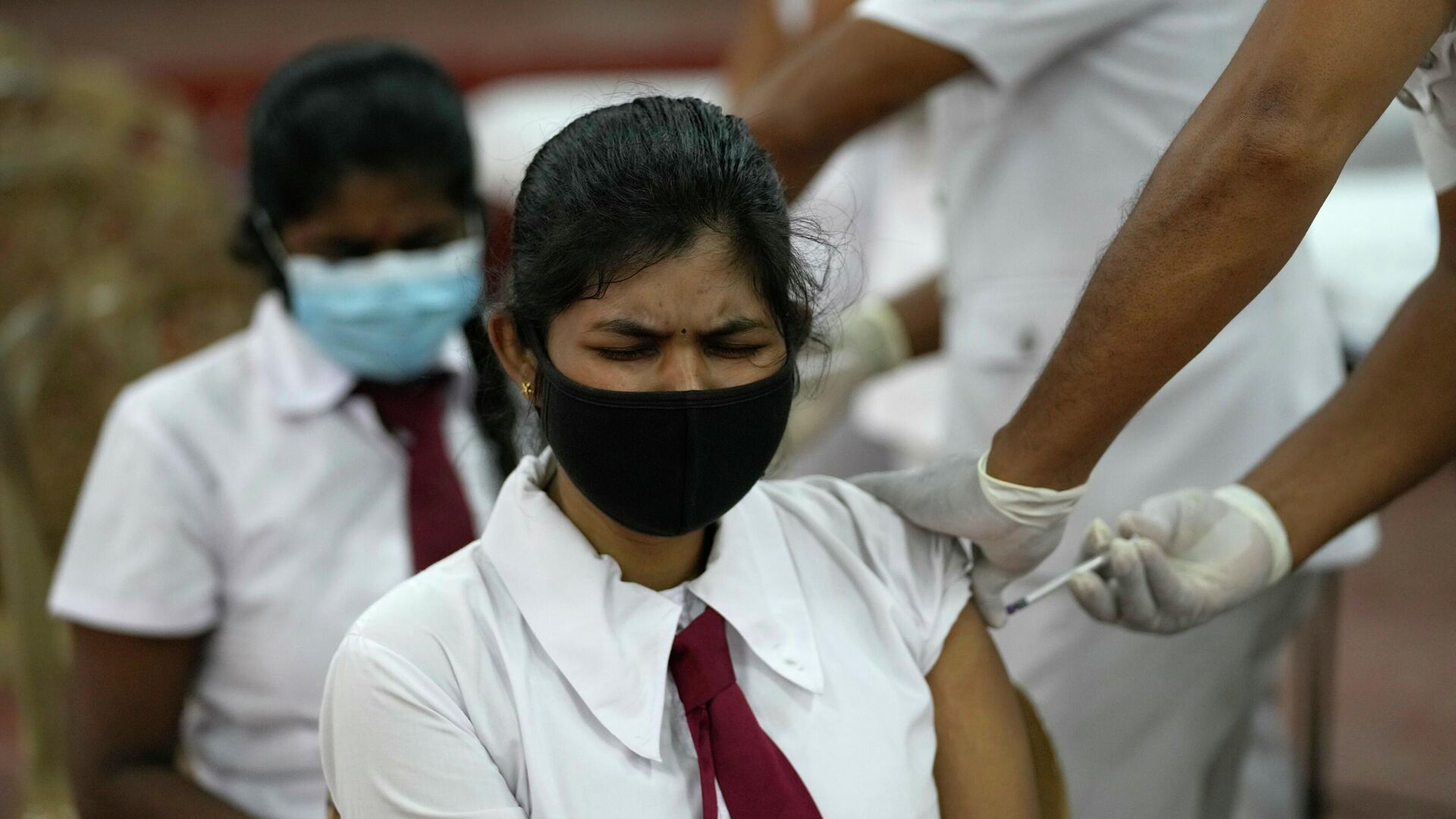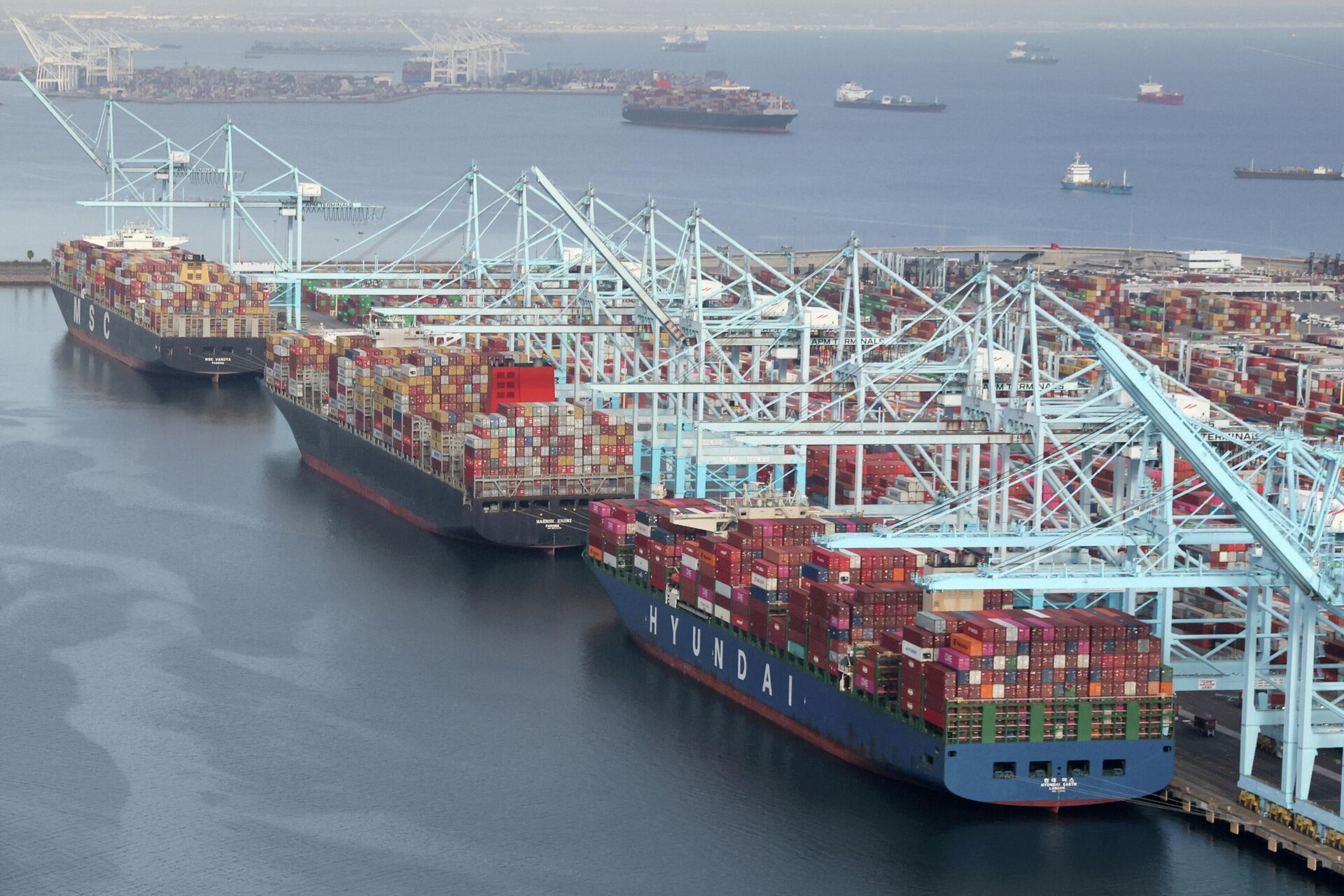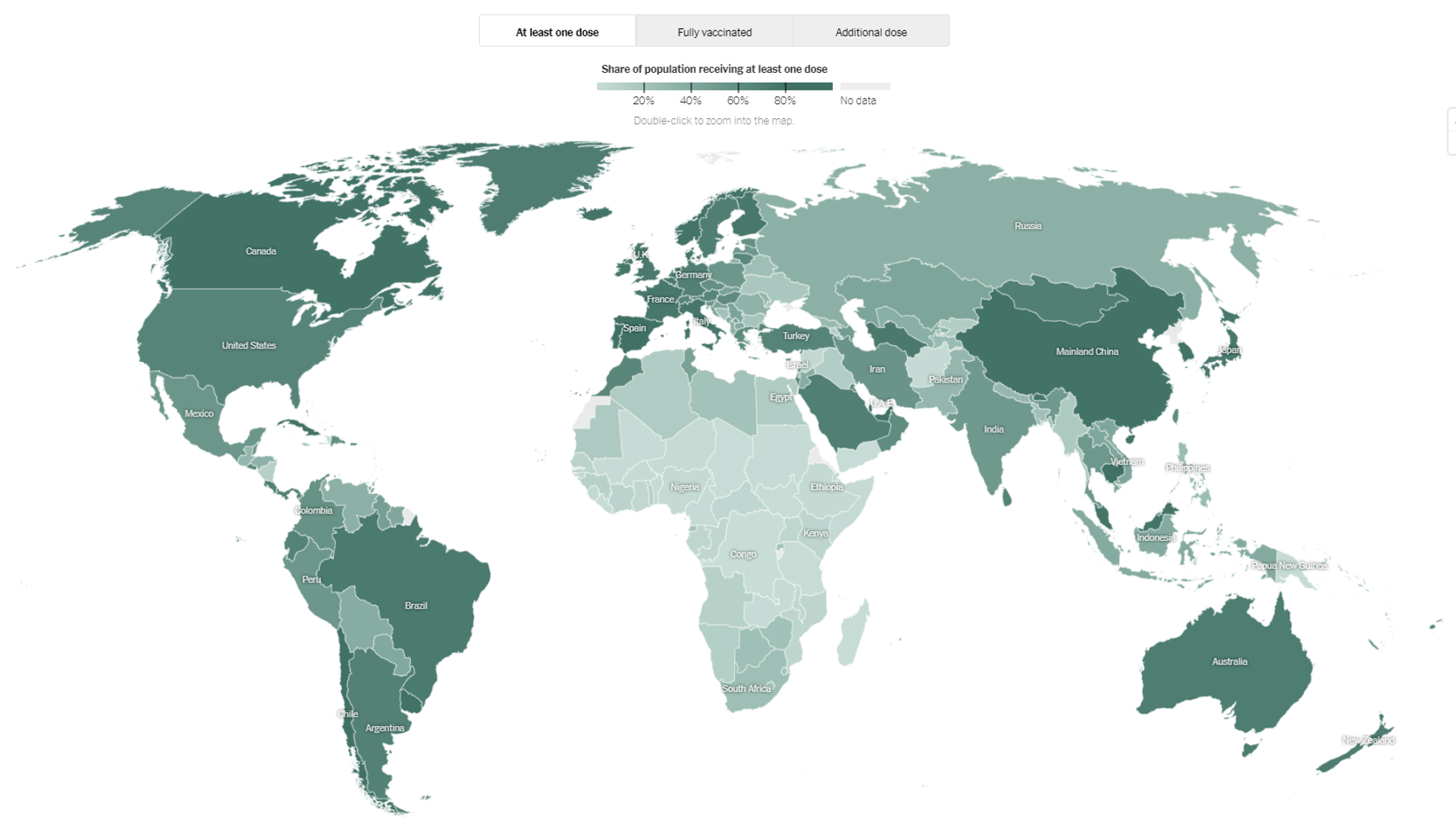IMF Warns Pandemic’s ‘Continued Grip’ Could Widen Gap in Rich, Poor Nations’ Recovery

© AP Photo / Eranga Jayawardena
Subscribe
The International Monetary Fund (IMF), a Washington, DC-based international bank, projected a grim future global economic trajectory, warning that persistence of the COVID-19 pandemic would continue to exacerbate existing problems. However, the burden will be most heavily felt by the poorest countries, which are also the least-vaccinated.
Speaking Tuesday at a press briefing on the world economic outlook, IMF Chief Economist Gina Gopinath laid out some of the major problems facing the global economy, including reaffirming the bank’s projection that global growth in 2022 will be about 20% slower than in 2021 due to the ““continued grip of the pandemic on global society.”
The IMF slightly revised its projected growth for this year downward by 0.1% to 5.9%, but also said that next year’s growth is still projected to be just 4.9%.
“However, this modest headline revision marks large downgrades for some countries,” Gopinath warned. “The outlook for low‑income and developing countries has taken a turn for the worse due to worsening pandemic dynamics.”
However, she also noted it included “more difficult near‑term prospects” for richer nations as well, driven in part by supply disruptions like those presently rocking the United States.
‘The Great Vaccine Divide’
Gopinath warned of a “dangerous divergence in economic prospects” between rich and poor countries, noting that in the next year, the world’s richest countries, which the IMF calls the “advanced economy group,” are expected to return to their pre-pandemic trend path and exceed it by 0.9% in 2024. By contrast, for middle-income and poor nations - with the important exception of China - aggregate output is expected to be 5.5% below their pre-pandemic forecast even by 2024, which the chief economist noted would result “in a larger setback to improvements in their living standards.”
“These divergences are a consequence of the great vaccine divide and large disparities in policy support,” she added. “While over 60% of the population in advanced economies are fully vaccinated and some are now receiving booster shots, about 96% of the population in low‑income countries remain unvaccinated … The foremost priority is therefore to vaccinate at least 40% of the population in every country by the end of this year and 70% by the middle of next year.”

Shipping containers are unloaded from ships at a container terminal at the Port of Long Beach-Port of Los Angeles complex in Los Angeles, California, U.S., April 7, 2021.
© REUTERS / LUCY NICHOLSON
Gopinath said accomplishing this goal would require high-income countries to follow through on their pledges to donate vaccines to both other governments and to the World Health Organization’s (WHO) COVAX program, to close a $20 billion funding gap for testing, therapeutics, and genomic surveillance that tracks new variants of SARS-CoV-2. She also notably said rich nations must “remove trade restrictions on the flow of vaccines and their inputs.”
IMF Withheld COVID Relief Loans
Ironically, the IMF itself has stood directly in the way of this by withholding a $5 billion loan for Venezuela via the bank’s Rapid Financing Instrument, a special mechanism for distributing COVID-19-related relief funds, for 18 months. The DC-based IMF has claimed there is “no clarity” on international recognition of the Venezuelan government, because roughly 50 western and Latin American nations have continued to recognize former opposition lawmaker Juan Guaido as the country’s interim president.
Guaido, who has no domestic support in Venezuela and never ran for president, has enjoyed US backing since 2019, when he declared himself the country’s rightful ruler and denounced Venezuelan President Nicolas Maduro as illegitimate, immediately receiving US backing for his coup.
Last week, Venezuelan Vice President Delcy Rodriguez slammed the US for blocking the IMF loan, accusing Washington of “crimes against humanity” for continuing to frustrate the country’s response to the COVID-19 pandemic. US lawmakers and the United Nations’ special rapporteur on coercive measures have also called on the Biden administration to lower its destructive sanctions against Caracas so as to help them fight the pandemic.
The US similarly blocked a $5 billion IMF loan for Iran, which it has also targeted with “maximum pressure” sanctions, despite Iran being the second country to experience a major COVID-19 outbreak after China and being extremely hard-hit by the virus.

A world map showing the COVID-19 vaccination status of each nation on October 15, 2021. The darker a nation is shaded, the larger the percentage of its population has gotten at least one vaccine shot. Image taken from NY Times Coronavirus Tracker.
‘Ignoring a Whole Continent’
Gopinath’s words were echoed by WHO chief Tedros Adhanom Ghebreyesus on Tuesday, who issued a fresh denunciation of COVID-19 booster shots. While the WHO has recommended third booster shots for immunocompromised people, the global health agency has said they should largely wait until most of the globe has gotten its regular vaccinations first.
Tedros told CNN that western nations giving out third “booster” shots to residents - intended to fortify their immunization against the Delta variant of SARS-CoV-2 - while other nations haven’t even given their populations the regular vaccine schedule is "immoral, unfair and unjust and it has to stop.”
"To start boosters is really the worst we can do as a global community. It is unjust and also unfair because we will not stop the pandemic by ignoring a whole continent, and the continent that doesn't have any manufacturing capacity of other means," he said.
Tedros was speaking of Africa, where about 7% of the population has gotten at least one dose of a COVID-19 vaccine.
By contrast, about 50% of residents on every other populated continent have gotten at least one shot, while up to 86% of UK residents have received both shots. In the US, that number is 56.8%, notably dragging behind most of the industrialized world. This includes the much poorer People’s Republic of China, which has fully vaccinated 80% of its massive 1.4 billion-strong population, which is about 17% of humanity.
In the US, where the Pfizer-BioNTech vaccine was approved last month, about 2.8% of the population has been given a third shot. Pfizer has banked much of its future profits on the sales of COVID-19 treatments and vaccines as the virus becomes endemic, and its CEO, Albert Bourla, has pushed annual booster shots of the vaccine as the United States’ only path back to “normal life.”


